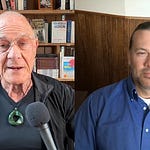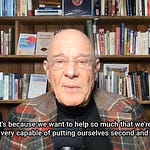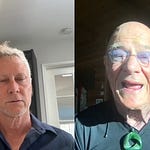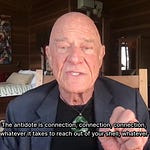Why is MDMA so effective at treating PTSD?
Does microdosing LSD affect depressed individuals differently than those with a more positive outlook?
Some of us have been waiting for answers to these kinds of questions about psychedelics for more than 50 years.
As a young academic in the 1960s, I had my own life-changing experiences with psychedelics, which set me on a new career path as a clinical psychologist. But like many of my generation, I watched with dismay as these powerful tools were demonized and criminalized in the decades that followed, driven underground by a combination of political backlash and cultural stigma.
Now, we find myself in the midst of a remarkable resurgence of interest in psychedelic medicine. From the halls of academia to the pages of mainstream media, there is a growing recognition that compounds like LSD, psilocybin, and MDMA may hold tremendous potential for treating a wide range of mental health conditions, from depression and addiction to PTSD and end-of-life anxiety.
Thanks to brave researchers like Dr. Harriet de Wit, we're finally getting more answers.
Dr. de Wit, a Professor of Psychiatry and Behavioral Neuroscience at the University of Chicago, spent decades studying various drugs before focusing on the therapeutic potential of psychedelics.
However, when she first began exploring LSD microdosing, she was cautious about openly discussing her research. "I was very nervous about doing LSD research to begin with because of the stigma," she revealed.
To minimize attention, she referred to her first study as a "serotonin agonist" study, even though she still named it as LSD in the description.
The approval process for her study took nearly two years.
Her groundbreaking work has been published in prestigious journals like Neuropsychopharmacology and Biological Psychiatry.
In my latest interview, Dr. de Wit shares fascinating insights on:
MDMA's unique effects on our sensitivity to negative emotions in other people’s faces
The dose-dependent effects of LSD microdosing on mood and cognition
The importance of controlled research to maximize benefits and minimize risks
Dr. DeWit's research shows that these compounds have the ability to reshape neural pathways and facilitate deep emotional healing.
"MDMA is technically not a psychedelic, but it does have unique effects that make it useful in therapy."
But to fully realize this potential, we will need to do more than just demonstrate their efficacy in clinical trials. We will need to develop new models of care that integrate psychedelic therapies into the broader landscape of mental health services, while ensuring that they are delivered safely, ethically, and not just for the wealthy.
We may also need to challenge long-held assumptions about the nature of mental illness and the ability to consciously control the healing process.
"Microdosing LSD under controlled conditions allows for the study of its effects without the influence of expectations." – Dr. Harriet de Wit
For Dr. DeWit, this process of integration is not only necessary but inevitable. "I would like to go on forever," she told me with a smile. "It's fascinating to ask all these questions, and there seems to be an infinite number of them."
One of the most pressing needs is for continued funding and institutional support for rigorous, well-designed studies that can provide definitive answers to the many questions that remain.
This week, I’m inviting my listeners to share their most pressing unanswered questions about psychedelics. Please share them on YouTube, or send me a Direct Message on Instagram.
While you’re there, be sure to follow and subscribe so you don’t miss my answers.
Takeaways
Harriet DeWit has a long and distinguished career in science, particularly in psychedelic science.
Her research has focused on amphetamines, MDMA, and microdosing LSD.
MDMA has unique effects, including increased sociability, empathy, and a reduction in the feeling of rejection.
Microdosing LSD at low doses has shown potential therapeutic benefits.
There are risks and limitations associated with these substances, including the potential for misuse and exclusion of individuals with cardiovascular issues from research studies.
Individual responses to microdosing LSD vary, with the subsensate cutoff point ranging between 10 and 15 micrograms.
Microdosing can lead to increased energy and arousal, but not necessarily distortions or emotional effects.
Microdosing has potential as an antidepressant, but further research is needed.
Measures used in microdosing research include self-report questionnaires and EEG.
Caution and responsible use of psychedelics are necessary due to their powerful effects.
Links and Resources
Greater subjective effects of a low dose of LSD in participants with depressed mood - Study
Methamphetamine's Impact on Social Bonding vs. MDMA - PsyPost
Microdosing Psychedelics: Current Evidence From Controlled Studies - ScienceDirect
My Books
Freeing Sexuality: Psychologists, Consent Teachers, Polyamory Experts, and Sex Workers Speak Out
Psychedelic Wisdom: The Astonishing Rewards of Mind-Altering Substances
Psychedelic Medicine: The Healing Powers of LSD, MDMA, Psilocybin, and Ayahuasca
Integral Psychedelic Therapy (co-edited with Jason A. Butler & Genesee Herzberg)












